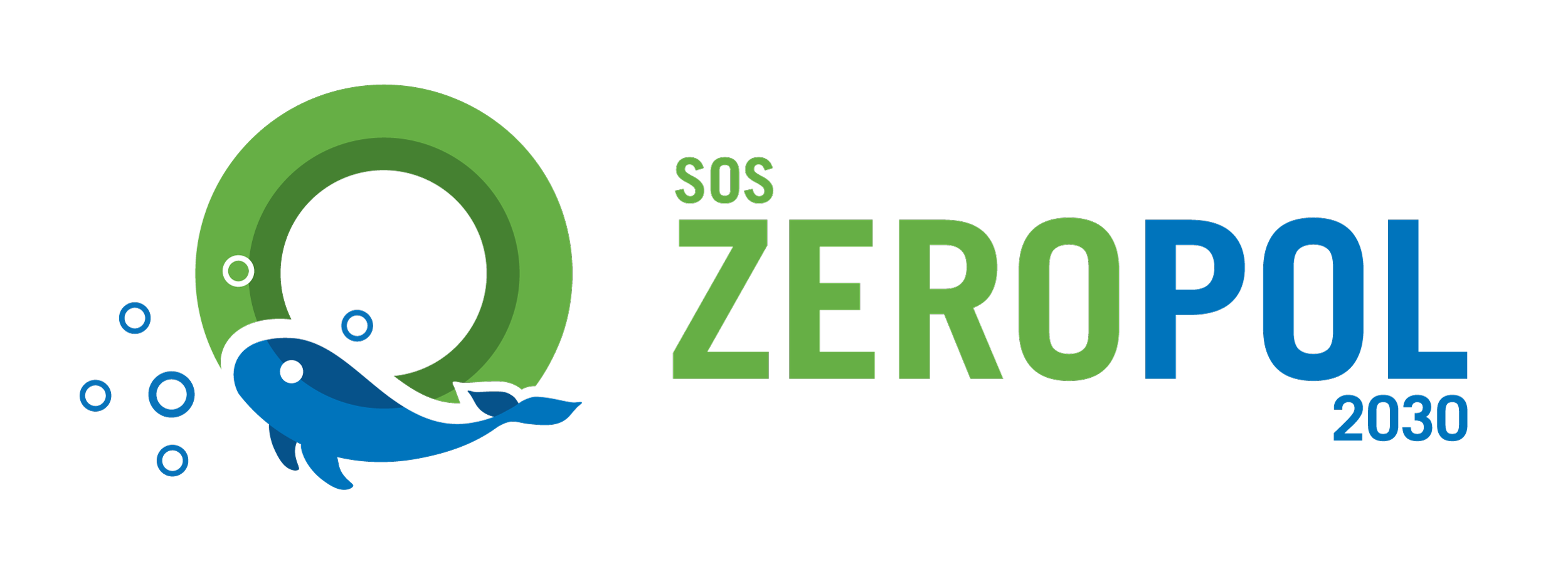Marine contamination occurs as a direct result of human activities taking place on land and at sea and requires our urgent attention as healthy and clean seas are critical for our survival and wellbeing. The implementation measures to reduce marine pollution will have consequences for numerous economic sectors at multiple levels, framing marine pollution as a considerable global socio-economic challenge that requires active collaboration from wide-ranging stakeholders across Europe.
MIO-ECSDE is part of a € 3 million European research project entitled Source to Seas – Zero Pollution 2030 (SOS-ZEROPOL2030) aiming to develop a holistic, stakeholder-led zero pollution framework, ultimately reflecting the EU’s very ambitious policy and legislative framework governing the environmental protection of our seas with focus on the zero environmental pollution agenda.
The 4-year SOS-ZEROPOL2030 project, funded by the EU’s Horizon2020 scheme, kicked-off on 27 September 2022 and will run till September 2026. Led by MaREI, the SFI Centre for Energy Climate and Marine Research at University College Cork, the project brings together a consortium of 10 European institutions and organizations that form a unique interdisciplinary partnership with expertise in: fundamental and applied natural sciences and associated governance related to marine pollution; social sciences related to stakeholder engagement and human behaviour.
MIO-ECSDE is leading the ‘Zero Pollution Accelerator’ related work package of the project.

- Level of completion 50%
The overall aim of the project is to co-design, co-produce, and co-deliver a stakeholder-led European Seas zero pollution framework that provides practical guidance from ‘source to sea’ on how to address shortcomings in existing marine pollution management and governance approaches. This holistic approach is based on best practice, places emphasis on human behaviour, socioeconomics, and governance, and is underpinned by knowledge about and understanding of current barriers to effective and efficient prevention, reduction, mitigation and monitoring of marine pollution in European Seas.
The aim of SOS-ZEROPOL2030 will be achieved through a set of actions that will fulfil the following six specific project objectives:
- Improve the understanding of the barriers that compromise successful marine pollution management and stakeholder participation in Europe and identify appropriate intervention points, measures and actions that can support a blue green transition with focus on human behaviour, socio-economics and governance.
- Capitalise upon best practices concerning the implementation of sustainable and effective measures that address marine pollution for priority pollution types in European Seas.
- Engage stakeholders through a joint knowledge production process that captures and integrates their knowledge and understanding regarding obstacles and opportunities in relation to the implementation of efficient and effective marine pollution reduction, prevention, mitigation measures and monitoring in a ‘living lab’ approach.
- Provide practical guidelines that incorporate the principles of a circular economy, are transferable across geographic regions and types of pollutants, and exemplify how to ‘turn off the tap’ from source to sea by focusing on consumer products that cause specific types of pollution at regional sea level.
- Co-develop a practical roadmap that will guide the blue green transition needed to reach clean European seas by 2030 with and for all relevant stakeholders.
- Generate societal impact and raise widespread awareness of how marine pollution can be addressed efficiently and effectively, through proactive engagement with multiple stakeholders at regional sea level and targeted extensive project communication, dissemination and outreach and specific promotion of innovative actions and practical measures.
SOS-ZEROPOL2030 will focus on four priority pollutants that are listed below:
- Nutrient inputs, especially focusing on sources and pathways from agricultural activities;
- Contaminants with focus on hazardous substances and those that bioaccumulate;
- Plastic litter at sea with focus on microplastics; and
- Underwater noise.
- A Strategic Zero Pollution Framework providing the approach and process to be followed at EU, regional and national level, to integrate and align all required governance approaches and guide policy and decision makers on how to reach zero pollution and associated actions.
- A roadmap providing the tactical plan towards zero pollution in European Seas that identifies where and when actions, solutions and measures must be put in place to reach zero pollution.
- An effective, swift and wide uptake and replication of novel solutions and best practices by user communities, via fit-for-purpose and user-friendly guidelines that will enable the operationalization of the framework and roadmap towards clean European Seas by 2030.
- Multi-stakeholder, multi-sectoral and multi-level actions that can deliver a successful blue green transition towards clean European Seas by 2030, through a truly ambitious, transformational and pragmatic framework and roadmap.
- A strengthened science-policy-society interface and a seamless environmental management continuum, where robust knowledge on pollution related issues can be effectively streamlined into a refined policy vision that can deliver an informed societal response that deploys targeted and effective pollution prevention and mitigation approaches.
Coordinator:
- University College Cork (UCC) – Ireland
Partners:
- Flanders Marine Institute (VLIZ) – Belgium
- Wageningen University (WU) – Netherlands
- University of Vienna (Univie) – Austria
- SINTEF Ocean (SO) – Norway
- Stichting Wageningen Research (WR) – Netherlands
- Black Sea NGO Network (BSNN) – Bulgaria
- Mediterranean Information Office for Environment, Culture and Sustainable Development (MIO-ECSDE) – Greece
- GRID-Arendal – Norway
- Institute for Advanced Sustainability Studies (IASS) – Germany
Title: Source to Seas – Zero Pollution 2030 (SOS-ZEROPOL2030)
Funding instrument: Horizon Europe
Thematic axis: Destination 4 on clean environment and zero pollution
Project duration: 27 September 2022 – 31 August 2026 (48 months)
Project budget: 2,998,100 €
Project website: https://soszeropol2030.eu
For more info: Thomais Vlachogianni, SOS-ZEROPOL2030 WP5 Leader, vlachogianni@mio-ecsde.org